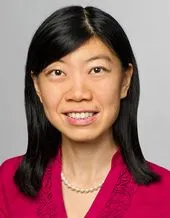Rudolf Mößbauer Tenure Track Professor Jia Chen (Environmental Sensing and Modeling) was selected to be a member of Global Young Academy (GYA) for a term of 5 years starting in June 2021.
The IAS congratulates Prof. Chen on becoming a member of this renowned multidisciplinary academy.
Jia Chen’s research focuses on climate change and urban air pollution. She develops novel optical sensors, methods, and atmospheric models to localize and quantify greenhouse gas emissions and to understand the metabolism of air pollutants in urban environments. She has established the worldwide first city sensor network based on the novel method of differential column measurements. This pioneering work enables long-term assessment of urban greenhouse gas and pollutant emissions. Her research topics include sensor development and emission monitoring for greenhouse gases and air pollutants, atmospheric modelling, computational fluid dynamics, semantic kriging, ground and satellite based remote sensing, Fourier transform spectrometry, and tunable diode laser absorption spectroscopy.
Jia Chen studied electrical engineering at KIT (Dipl.-Ing.) and was awarded a PhD (summa cum laude) from TUM. From 2011 to 2015, she was a postdoctoral fellow at Harvard University. Since 2015, Jia Chen has been TUM Professor of Environmental Sensing and Modeling. She is also an Associate at Harvard University. She is (co-)author of more than 160 publications and 12 patents.
The Global Young Academy (GYA) gives a voice to young scientists around the world. To realise their vision, they develop, connect, and mobilise young talent from six continents. Moreover, they empower young researchers to lead international, interdisciplinary, and inter-generational dialogue with the goal to make global decision making evidence-based and inclusive.
The GYA provides a rallying point for outstanding young scientists from around the world to come together to address topics of global importance. As of 2014, the GYA has reached its full capacity with 200 members: leading young scientists, typically 3-10 years after their PhD, between 30 to 40 years of age, and in the early stages of their independent academic careers. Members are selected for their scientific excellence and their commitment to service, and serve five-year terms. Thus, as of June 2020, the GYA counts 298 alumni in addition to its 200 members; together representing 86 countries. The vibrancy of this global organisation results from the energy of its members, who are passionate about the role of science in creating a better world.
More information about the Global Young Academy and a full list of new members can be found here: https://globalyoungacademy.net/
